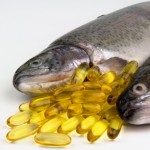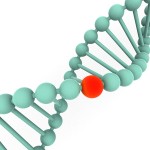We Grow What We Eat
Author: Dr. Stephen Chaney
 The subtitle of this week’s “Health Tips From the Professor” is “We Grow What We Eat”.
The subtitle of this week’s “Health Tips From the Professor” is “We Grow What We Eat”.
No, this is not about each of us starting a backyard garden and literally growing what we eat – although that would probably be a good idea for most of us. I’m actually talking about the bacteria that we “grow” in our intestine.
Most of you probably already know about the concept of “good” and “bad” intestinal bacteria.
Evidence suggests that the “bad” bacteria and yeast in our intestine can cause all sorts of adverse health effects:
- There is mounting evidence that they can compromise our immune system.
- There is also evidence that they can create a “leaky gut” (you can think of this as knocking holes in our intestinal wall that allow partially digested foods to enter the circulation where they can trigger inflammation and auto-immune responses).
- There is some evidence that they can affect brain function and our moods.
- They appear to convert the foods that we eat into cancer causing chemicals which can be absorbed into the bloodstream.
- Studies in mice even suggest that they can make us fat.
The list goes on and on…
The “good bacteria” are thought to crowd out the “bad” bacteria and prevent many of the health problems they cause.
In case you’re thinking that it seems a bit far-fetched to think that our intestinal bacteria could affect our health, let me remind you that we have about 100 trillion bacteria in our intestine compared to about 10 trillion cells in our body. They outnumber us 10 to 1.
For years we have thought of “bad” bacteria and yeast as originating from undercooked, spoiled or poorly washed foods that we eat and the “good” bacteria as originating from foods like yogurt and probiotic supplements.
But most of us have not thought that the kinds of foods we choose to eat on a daily basis can affect the kinds of bacteria we “grow” in our intestine – until now. You’ve heard for years that “We are what we eat”. Well it now appears that we also “grow what we eat”. I’m referring to a recent study by G. D. Wu et al (Science, 334: 105-108, 2011).
Our Gut Bacteria Are What We Eat
I’m going to get a bit technical here (Don’t worry. There won’t be a quiz). Scientists refer to the population of bacteria in our intestines as our “microbiome”. Previous studies have shown that people from all over the world tend to have one of two distinct microbiomes (populations of bacteria) in their intestines – Bacteroides or Prevotella. [Again, don’t let the specialized scientific terminology scare you. These are just the names scientists have given to these two distinctive populations of intestinal bacteria].
What this study showed was that people who habitually consumed high-fat/low-fiber diets (diets containing predominantly animal protein and saturated fats) tended to have the Bacteroides bacteria in their intestine, while people who habitually consumed low-fat/high-fiber diets (diets that are primarily plant based and are high in carbohydrate and low in meat and dairy) tended to have the Prevotella bacteria in their intestine. And surprisingly this appears to be independent of sex, weight and nationality.
Is This Important?
The research defining these two distinct microbiomes (populations of intestinal bacteria) and showing that they are influenced by what we eat is very new. At this point in time we know relatively little about the health benefits and risks associated with the Bacteroides and Prevotella microbiomes.
For example:
- Most of the studies on the health effects of “bad intestinal bacteria” were based on the identification of one or two “bad bacteria” in the gut – not on the hundreds of bacterial species found in the Bacteroides microbiome. So we can’t say for sure that the Bacteriodes microbiome found in people with diets high in animal protein and saturated fats will cause the same health problems as the “bad bacteria”. Nor do we know for sure how important a role the Bacteriodes microbiome plays in the health consequences of consuming that kind of diet.
- Similarly, many of studies on the health benefits of “good intestinal bacteria” have been based on probiotic supplements containing one or two bacterial species – not the hundreds of bacterial species found in the Prevotella microbiome. So we can’t really say if probiotics or even the Prevotella microbiome will convey the same health benefits seen in populations who consume vegetarian diets.
However, now that do we know that we “grow what we eat” there are numerous studies ongoing to define the benefits and risks associated with each type of bacterial population.
For example, I shared a study with you recently which shows that the intestinal bacteria in people who eat a lot of animal protein convert carnitine (which is also found in meat) to a compound called TMAO, which may increase the risk of heart attacks, and that the conversion of carnitine to TMAO does not occur in people who consume a vegetarian diet ( see “Does Carnitine Increase Heart Disease Risk”)
Stay tuned! I’ll keep you updated as more information becomes available.
The Bottom Line:
Most of the studies I report on are ones that you can act on right away. This one is different. This study introduces a whole new concept – one that raises as many questions as it answers. This makes us ask those “what if” questions.
1) Previous studies have shown that most people have one of two different kinds of microbiomes (populations of bacteria) in their intestines. This study showed that diets high in animal protein and fat favored one kind of intestinal microbiome, while diets low in fat and high in fiber from fruits & vegetables favored another type of intestinal microbiome.
2) With a few exceptions we don’t know yet how important a role these intestinal microbiomes play in determining the health consequences of different diets. However, because our intestinal bacteria outnumber the cells in our body by 10:1, it is tempting to ask “What if?”
3) We also don’t yet know the extent to which probiotics (either from foods or supplements) can overcome the effects of a bad diet on our intestinal microbiome, but it is tempting to ask “What if?”
These statements have not been evaluated by the Food and Drug Administration. This information is not intended to diagnose, treat, cure or prevent any disease.
















